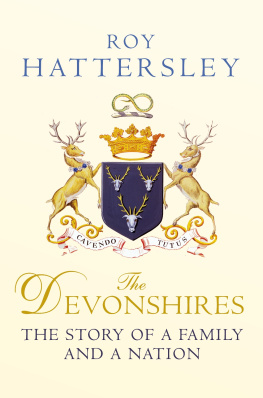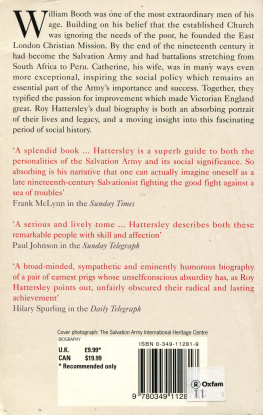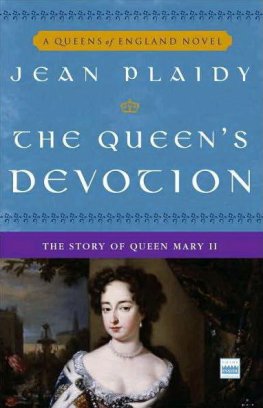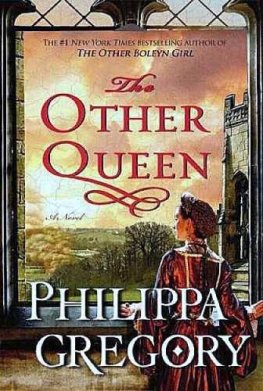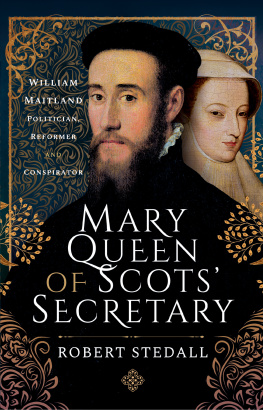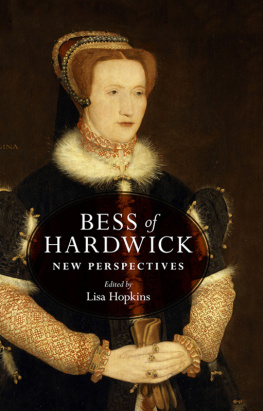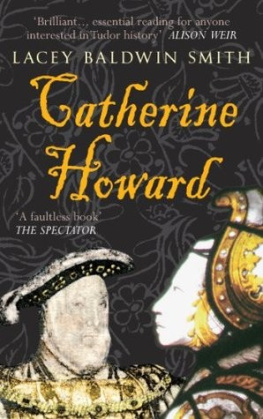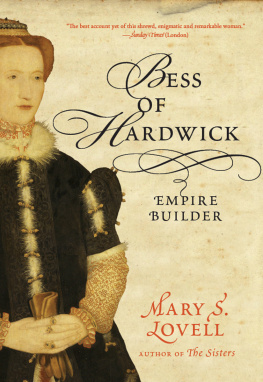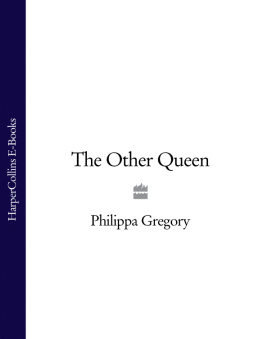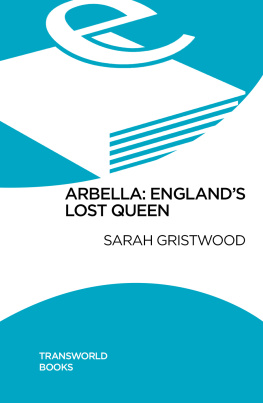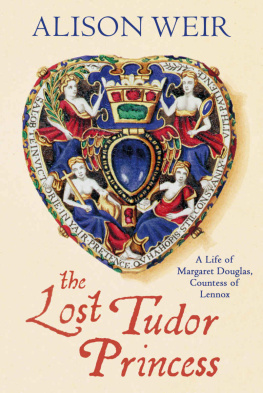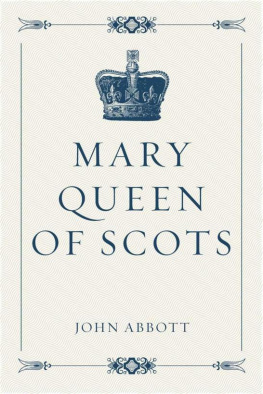Contents
ALSO BY ROY HATTERSLEY
NON FICTION
Nelson
Goodbye to Yorkshire
Politics Apart
Endpiece Revisited
Press Gang
A Yorkshire Boyhood
Choose Freedom
Between Ourselves
Who Goes Home?
Fifty Years On
Busters Diaries
Blood and Fire
A Brand from Burning
The Edwardians
Campbell-Bannerman
Busters Secret Diaries
Borrowed Time
In Search of England
David Lloyd George
FICTION
The Makers Mark
In That Quiet Earth
Skylark Song
Acknowledgements
During my early teens, each of our family summers invariably included a series of days out. One of them was always an excursion to Chatsworth. The journey across Sheffield and into Derbyshire two tramcars and a bus took most of the morning. So we ate our lettuce and tomato sandwiches in the park before visiting the house by which time I was more than ready to go home. I was impressed by neither the pictures nor the furniture. All that lightened my afternoon was the sight of the trompe-loeil violin which was hanging from a door in the north wall of the State Music Room. It hangs there still. Several times during the last three years, I have taken a break from working my way through the Chatsworth archives and, in order to relive that moment of adolescent wonder, joined the visitors who were making their way through the state rooms. I owe the Duke of Devonshire far more than the unpaid entrance fees. Without his generosity in allowing me regular access to his family papers, The Devonshires could not have been written and I would not have enjoyed the particular pleasure of reading the historically important but neglected correspondence of the Eighth Duke of Devonshire, Harty-Tarty. The Duke was also kind enough to read, and improve, the Afterword a twentieth-century postscript to the 500-year story.
James Towe, the Archivist/Librarian at Chatsworth together with Stuart Band and Andrew Peppitt, the archivists emeritus provided far more help than simply retrieving the documents which I wanted to examine, a task which they accomplished with unfailing patience. They all possess an extraordinary knowledge of Devonshire history which they happily shared with me. Andrew Peppitt read the penultimate draft of the whole book and, as well as correcting numerous errors, made valuable suggestions for its improvement
Philip Riden of the School of History in the University of Nottingham allowed me to read and quote from papers he had written on Bess of Hardwicks immediate descendants, as well as providing general guidance about the origins of the families which came together to create the dynasty. Professor Keith Burnett, FRS the Vice-Chancellor of the University of Sheffield gave me individual tuition on the work of Henry Cavendish, the scientist who measured the weight of the world. My recent discovery of word-processing spared Cynthia Shepherd, my personal assistant for almost twenty years, the tedium of typing innumerable drafts. But she corrected grammar and spelling, identified contradictions and repetitions and made sense of the notes and references. Penny Hoare, my editor at Chatto, made suggestions which enabled me greatly to improve the flow of the text.
I am also grateful for original material which was made available (online) by the Fogler Library, Maine, USA, and I am indebted to the University of Nottingham for permission to quote from its collection of Portland Papers. The London Library was, as always, indispensable. Included among the books it lent to me were much to my surprise a biography of Cardinal Wolsey, written immediately after his death, a memoir of the First Duke of Newcastle, written by his wife in 1667, and The Lives of All the Earls and Dukes of Devonshire, written by Mr Grove of Richmond in 1764.
My gratitude for all the help which I received, during the three years in which I wrote The Devonshires, is boundless. Of course, the errors and omissions which undoubtedly remain are entirely my responsibility.
List of Illustrations
Authors Note
Family histories, by their nature, are stories about generations of characters with identical names. Ten consecutive Earls and Dukes of Devonshire were baptised William Cavendish. The problem of clearly identifying members of the nobility is compounded by their habit of changing names as a result of inheriting titles. Thus Spencer Compton Cavendish became first the Marquis of Hartington and then the Eighth Duke of Devonshire. Naturally enough, contemporary documents used whichever name was appropriate when they were written. In the hope of avoiding confusion I have identified some characters by name more often than is usual and in more detail than is customary the Marquis of Hartington, soon to become the Duke of Devonshire.
What follows contains quotations from documents which were written over a period of five centuries. For much of that time there was neither standard spelling nor standard grammar. Even in the nineteenth century the notes which were sent, almost hourly, between politicians were littered, as are texts today, with abbreviations and errors which the writer lacked either time or inclination to correct. As long as the meaning is clear, I have always quoted verbatim. Nor have I followed strange usages with the explanation sic. Had I done so, sic would have become one of the most frequently used words in the book.
Afterword
In the House of Commons, Mr Asquith leading for the government in the absence of the sick Prime Minister chose to make his memorial tribute more precise than effusive. In the Duke of Devonshire, he said, we have lost almost the last survivor of our heroic age. Whoever the other candidates for that accolade might be, one fact about the Dukes life was beyond dispute. He was certainly the last Cavendish to play a major role in the politics and government of England. After him, no member of the family exerted the influence or possessed the power which for good or ill had been its prerogative between Henry VIIIs Declaration of Royal Supremacy in 1532 and the Unionist Partys conversion to tariff reform in 1904. Nor did his heirs and successors continue to be, like Hamlets father, the mould of fashion and the glass of form. Cavendish men sat in parliament more often in the Lords than in the Commons. Occasionally they held office. Invariably they were awarded the honours and places at Court which accompany rank and title. But usually and by their own choice they did not guide the destiny of the nation.
Victor Cavendish, the Eighth Dukes nephew and heir, was a whip in the Salisbury government, an appointment which carried the official title of Treasurer of the Royal Household. The day after Queen Victoria died he discovered that, although not a member of the Privy Council, he was required to attend the meeting which recorded the end of her reign. The invitation caused him great distress, not on account of its sad occasion, but because as it was to be held at St Jamess Palace he was expected to wear court dress. His diary records his concern. My uniform was not finished.
A week later he received a telegram from the Duke of Norfolk, telling him that he was to march in the third rank of the funeral procession. For a second time in seven days he faced a clothes crisis. Full dress coat. Had to borrow one.
Seven years later he succeeded to his uncles title and estate. The death of the Eighth Duke was marked by the Devonshires first, though by no means most salutary, experience of death duties. The Exchequer was owed more than 500,000. Added to the debts accumulated by the Seventh Dukes heroic attempts to build an industrial and commercial empire, the taxes left his grandson with no choice but to embark on the biggest sale in Cavendish history the antithesis of everything the family had believed in since Bess applied to the family of her recently dead first husband for a portion of his estate.
Next page
